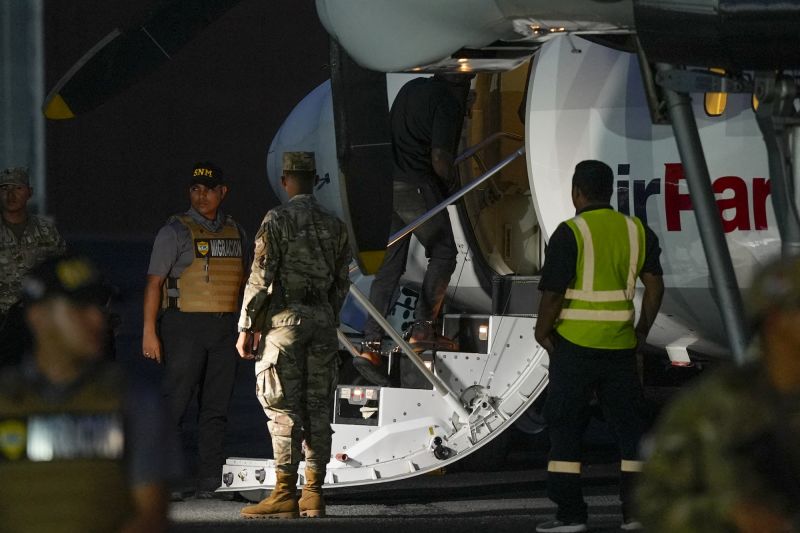
29 Colombian Migrants Sent Packing from Panama on Inaugural US-Backed Repatriation Flight
The recent deportation of 29 Colombian migrants from Panama on the first US-funded repatriation flight has raised concerns about the treatment of migrants and the collaboration between countries in managing migration flows. This event sheds light on the complexities and challenges faced by individuals seeking refuge or better opportunities in another country.
One of the most pressing issues highlighted by this deportation is the lack of adequate protection for migrants, especially those fleeing instability or violence in their home countries. The case of the Colombian migrants deported from Panama underscores the need for a more comprehensive and humane approach to migration management.
It is crucial for countries to uphold international standards and ensure that migrants are treated with dignity and respect throughout the deportation process. Collaborative efforts between nations should prioritize the well-being of individuals affected by migration policies and seek to address the root causes that force people to leave their homes.
Furthermore, the use of repatriation flights funded by the US raises questions about the role of external actors in shaping migration policies and practices. While support from other countries can aid in managing migration flows, it is essential that such assistance aligns with human rights principles and takes into account the individual circumstances of migrants.
The situation of the Colombian migrants deported from Panama highlights the need for a more just and compassionate approach to migration management. Policy-makers and stakeholders must work together to develop sustainable solutions that respect the rights and dignity of all individuals, regardless of their migration status.
In conclusion, the deportation of the 29 Colombian migrants from Panama serves as a reminder of the complex challenges faced by migrants worldwide. It calls for a reevaluation of current migration policies and practices to ensure the protection and well-being of individuals on the move. By working together and upholding human rights principles, countries can create a more inclusive and equitable approach to migration management.
